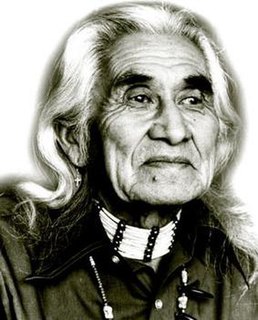A Quote by Albert Einstein
It is my inner conviction that the development of science seeks in the main to satisfy the longing for pure knowledge.
Quote Topics
Related Quotes
This example illustrates the differences in the effects which may be produced by research in pure or applied science. A research on the lines of applied science would doubtless have led to improvement and development of the older methods - the research in pure science has given us an entirely new and much more powerful method. In fact, research in applied science leads to reforms, research in pure science leads to revolutions, and revolutions, whether political or industrial, are exceedingly profitable things if you are on the winning side.
The process of inner self-examination brings about a knowledge that is as rigorous and supported by evidence as anything science has to offer. At the same time, this point of view redefines faith as a knowledge that is attained not only by intellectual means, but also through the rigorous development of the emotional side of the human psyche. Such emotional knowledge is unknown to the isolated intellect and has therefore been mistakenly labeled as "irrational."
Science is better paid than at any time in the past. The results of this pay have been to attract into science many of those for whom the pay is the first consideration, and who scorn to sacrifice immediate profit for the freedom of development of their own concept. Moreover, this inner development, important and indispensable as it may be to the world of science in the future, generally does not have the tendency to put a single cent into the pockets of their employers.
The notion that "applied" knowledge is somehow less worthy than "pure" knowledge, was natural to a society in which all useful work was performed by slaves and serfs, and in which industry was controlled by the models set by custom rather than by intelligence. Science, or the highest knowing, was then identified with pure theorizing, apart from all application in the uses of life; and knowledge relating to useful arts suffered the stigma attaching to the classes who engaged in them.
Spiritual fulfillment doesn't have to mean belief in a religion or disbelief in science. ... Whether one believes in an unseen, all-knowing force, or the wonder of science and the universe, or simply the beauty of the human spirit, nearly every one of feels an inner longing to feel part of something bigger than ourselves.
The main difficulty is finding an idea that really excites me. We live in an age when miracles are no longer miracles, and science and the future are losing their sense of mystery. For science fiction, or at least the type of science fiction I write, this development is almost fatal, but I'm still giving it all I've got.
If the term education may be understood in so large a sense as to include all that belongs to the improvement of the mind, either by the acquisition of the knowledge of others or by increase of it through its own exertions, we learn by them what is the kind of education science offers to man. It teaches us to be neglectful of nothing - not to despise the small beginnings, for they precede of necessity all great things in the knowledge of science, either pure or applied.
Longing is the fullest sense of desire; it's the most deeply felt kind of desire. I think the most interesting artwork comes out of some sense of longing. It could be called dissatisfaction; it could be called distance. There are many kinds of wanting to get closer to something else, whether that is an idea, a body, a place. Longing is also one of the conditions people approach reading, visual art, or music with - it's to satisfy that sense of longing. It's part of my job, on some level, to grapple with that notion.
It is often claimed that knowledge multiplies so rapidly that nobody can follow it. I believe this is incorrect. At least in science it is not true. The main purpose of science is simplicity and as we understand more things, everything is becoming simpler. This, of course, goes contrary to what everyone accepts.





































